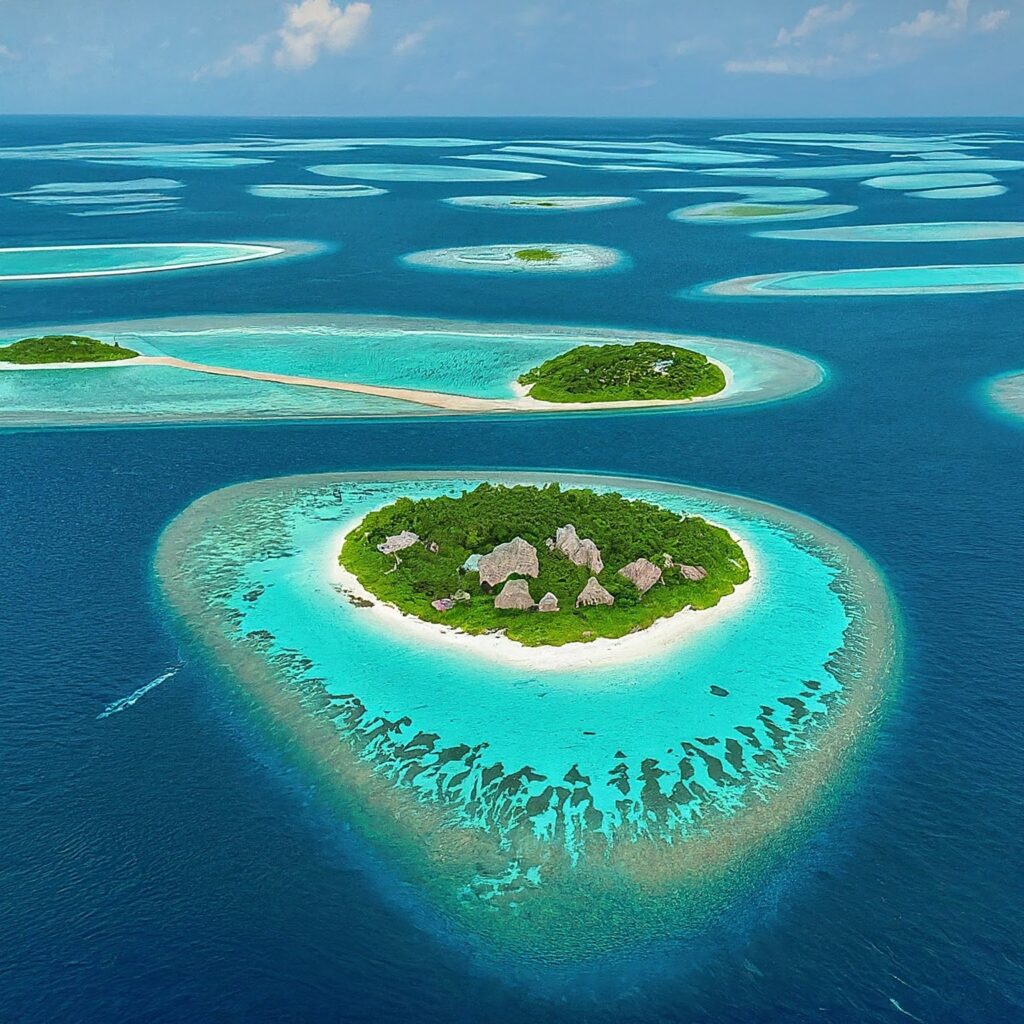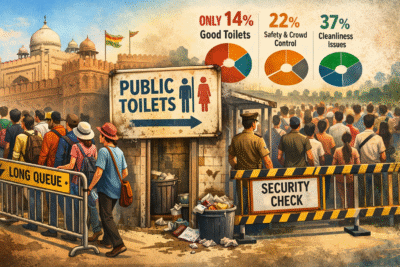
The turquoise waters of the Indian Ocean have long been a stage for the ebb and flow of power. Now, a significant shift is taking place, marked by the withdrawal of Indian military personnel from the Maldives. This move, prompted by the pro-China stance of newly elected Maldivian president Mohamed Muizzu, signifies a potential recalibration of power dynamics in this strategically crucial region.
A Strategic Retreat from the Paradise Islands
Following Muizzu’s assumption of office in September 2023, India began the process of withdrawing its military personnel stationed in the Maldives. As reported by Maldivian media outlet Mihaaru, this action culminates negotiations between the two nations. By May 10, 2024, a total of 89 Indian troops and their support staff will have departed, alongside the withdrawal of three Indian surveillance aircraft. Notably, the aircraft will remain operational, with Indian civilian personnel replacing the military to manage them.
This development coincides with the Maldives signing a “military assistance” deal with China. This agreement underscores a pivotal moment in the evolving regional dynamics and China’s growing strategic interest in the Indian Ocean. The Maldivian defense ministry claims the deal aims to strengthen bilateral ties and includes provisions for Chinese training assistance for Maldivian personnel.
The Geopolitical Chessboard: Stakes and Players
The Maldives, a string of idyllic islands scattered across the Indian Ocean, holds immense strategic importance due to its location along vital international shipping lanes. This strategic significance fuels the competition between regional powers like India and China. India, historically enjoying close ties with the Maldives, has expressed concern about China’s expanding footprint in the region, particularly in the Maldives and Sri Lanka.

Muizzu’s electoral victory and subsequent pivot towards China, its largest creditor, have strained relations between Male and New Delhi. During a visit to Beijing, Muizzu signed agreements spanning infrastructure, energy, marine, and agriculture sectors, refuting allegations of altering the regional balance of power.
Beyond Borders: A Broader Trend in Play
The withdrawal of Indian troops from the Maldives signifies not just a strategic shift but also a reflection of a broader trend in the region. Historically, India has enjoyed close relations with its neighbors based on shared cultural, historical, and economic ties.

However, China’s growing economic and military influence offers alternative partnerships for nations like the Maldives, diversifying their strategic options. This trend highlights the complex interplay of economic interests and security concerns that reshape regional alliances.
Challenges for India and the Uncertain Future of Relations
The shifting dynamics in the Maldives pose several challenges for India. Firstly, it weakens India’s influence in its immediate neighborhood, potentially diminishing its ability to project strategic power. The presence of Chinese military assistance and infrastructure projects could further compromise India’s security interests, particularly regarding maritime security and freedom of navigation in the Indian Ocean.
Furthermore, the withdrawal raises questions about the future trajectory of India-Maldives relations. Traditionally characterized by cooperation in various sectors, their relationship may undergo a recalibration. India needs to reassess its approach and devise strategies to safeguard its interests in the region amidst China’s growing influence.

This recalibration could involve fostering stronger economic ties, offering development assistance packages tailored to the Maldives’ specific needs, and exploring avenues for enhanced security cooperation in non-military domains.
India’s Proactive Response: Bolstering its Maritime Presence
India has not remained passive in the face of these developments. Strengthening its naval presence in the strategically located Lakshadweep islands, north of the Maldives, demonstrates its commitment to protecting its maritime interests and countering potential threats. This action resonates with India’s broader strategy to bolster its naval capabilities and maintain a credible deterrence posture in the Indian Ocean.
Navigating the Uncertain Waters: The Road Ahead
The withdrawal of Indian military personnel from the Maldives and the subsequent deepening of ties between the Maldives and China represent significant developments with far-reaching consequences for regional security and stability. India needs to adapt its strategic calculus and pursue diplomatic and security initiatives that safeguard its interests in the Indian Ocean. This evolving situation highlights the complex power play shaping the Indo-Pacific region, where alliances are constantly re-evaluated and the currents of power shift with the tides.

The Global Stage: Implications Beyond the Indian Ocean
The strategic shift in the Maldives, while significant for the Indian Ocean region, has broader ramifications that extend beyond its turquoise waters. This section will explore the potential global implications of this development.
Impact on the Indo-Pacific Power Balance
The Indian Ocean is a crucial node in the larger Indo-Pacific theater, a key geopolitical arena where major powers like the United States, China, India, and Japan vie for influence. India’s diminishing influence in the Maldives could embolden China’s assertiveness in the broader Indo-Pacific region. This could potentially lead to a domino effect, with other countries in the region reassessing their alignments and potentially tilting towards China.
The Security Dilemma and the Threat to Freedom of Navigation
A stronger Chinese military presence in the Maldives could pose challenges to freedom of navigation in the Indian Ocean. This vital waterway carries a significant portion of global trade, and any restrictions on free movement could have severe economic repercussions for countries around the world. Furthermore, it could escalate regional tensions and increase the risk of military confrontation.

The Role of the United States and the Quad
The United States, a key player in the Indo-Pacific, has a vested interest in maintaining regional stability and freedom of navigation. The Quadrilateral Security Dialogue (Quad), an informal alliance comprising the United States, India, Japan, and Australia, could play a crucial role in countering China’s growing influence. Increased cooperation and joint exercises within the Quad framework could send a strong message of regional solidarity and commitment to a free and open Indo-Pacific.
The Economic Battleground: Investment and Infrastructure
China’s growing economic clout, backed by its Belt and Road Initiative (BRI), has become a significant factor influencing regional alliances. As China offers attractive investment packages and infrastructure development projects, countries like the Maldives may find them difficult to resist. India needs to develop a robust counter-strategy, leveraging its own economic strengths and development partnerships to offer compelling alternatives to BRI.

A Multilateral Approach: Fostering Regional Cooperation
The evolving geopolitical landscape necessitates a multilateral approach to ensure regional stability and security. Forums like the Indian Ocean Rim Association for Regional Cooperation (IORA) can play a vital role in promoting economic development, maritime security cooperation, and disaster risk reduction among member states. Strengthening regional institutions and fostering a spirit of collective security will be essential to navigate the complex challenges of the Indian Ocean.
The Long Game: Building Trust and Partnerships
India’s long-term strategy in the region should focus on building trust and forging strong partnerships with its neighbors. This can be achieved through increased diplomatic engagement, cultural exchanges, educational programs, and capacity-building initiatives. By fostering deeper ties and demonstrating genuine commitment to the development and security of neighboring countries, India can solidify its position as a reliable regional partner.
A Test of Indian Diplomacy
The withdrawal of Indian military personnel from the Maldives marks a turning point in the Indian Ocean’s geopolitical landscape. While the immediate consequences are concerning, this development presents a crucial opportunity for India to reassess its strategic approach. By adapting to the evolving dynamics, strengthening its regional partnerships, and proactively promoting a free and open Indo-Pacific, India can navigate these challenging waters and continue to play a vital role in ensuring regional stability and security.




1 thought on “India vs China in Maldives: The Shifting Sand of Indian Ocean”